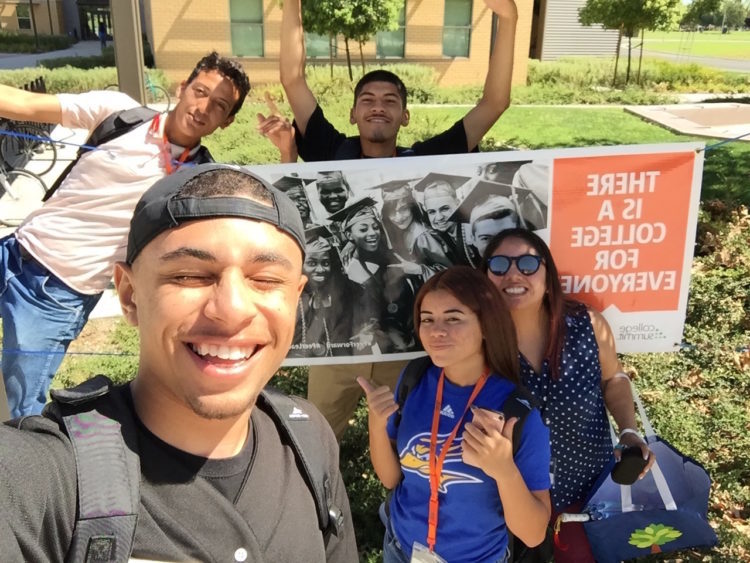Many people don’t go back to work in the community they grew up in, but doing so provides a special perspective. I’m a natural born citizen, who was raised by an immigrant mother who worked up to three jobs to raise her three children. My mother was a teacher in Guatemala and was one of my biggest advocates. She moved to the United States with two children to follow her husband’s desire to live the American dream. Thanks to my mother’s high expectations, I attended Fresno State.
Attending and graduating college might sound like a cliché parental expectation, but I always believed that it was a radical one in my case.
I am now the college and career pathways liaison at Community Health Advocates School (CHAS), located in South Central Los Angeles, the same community I was raised in. I work at the school through the Center for Powerful Public Schools.
South Central was known for its lack of resources and distinguished by its predominantly African-American and Latino residents. I attended Washington Preparatory High School which, at the time of my graduation, was the lowest performing school in the Los Angeles Unified School District (LAUSD). I was aware of its poor reputation and its lack of resources in comparison to other Los Angeles schools. Consequently, I became a community organizer during my high school years developing campaigns aimed at increasing monetary resources at my local school and other South Los Angeles schools.
The Spanish Teacher That Changed Everything
During my community organizing work, while engaging other students in protests, petitioning and filling out surveys for meetings with board members, I met my mentors. My first mentor was my Spanish teacher, who was the only adult I knew who made the political, social and economic status of our community a part of his teaching lessons. I never found other lessons in school appealing because the topics in class seemed boring and unrelatable. But after stepping into his class, everything changed for me.
Unlike my older siblings, I had previously been uninterested in school and didn’t have any personal or sports hobbies to keep me busy and engaged. When I learned from my Spanish teacher that there were community organizing groups working with people to lead campaigns and change the current state of education, I immediately wanted to get involved. I even enrolled my friends in this passion and we became part of the Community Coalition, now known as CoCo.
From Community Activism to College
The adults who worked with us to develop campaigns, including a campaign to win money from Proposition BB, a $2.4 billion-dollar school bond measure to build new schools and fix old ones, became part of my support network.
These adults who also became my mentors encouraged me to be a community activist as well as continue to pursue my education. My grades were below average and I was only allowed to continue to participate in major events under the condition that I received tutoring.
We took summer trips that were focused on California activist history, as well as trips to major colleges. Without fully realizing it, I was being encouraged and motivated to prepare for college. It was a clever way to encourage someone who wasn’t academically interested to engage via a rewarding incentive.
I will never forget one of my mentors staying past work hours to help me complete my college applications. I really never saw myself on a college campus or capable of handling myself in such an environment. Even after being accepted into colleges, I had many doubts about enrolling. My mother, mentors and my teachers all encouraged me to attend and I did with much hesitation. Now I look back and realize that it was one of the most difficult but fulfilling moments of my life.
Without my experience at the Community Coalition, I would not be working with students today at CHAS. The school population is 85 percent Latino and 14 percent African American. The resources in the community have remained mostly the same. Sixteen years after I finished high school, I find myself in my old neighborhood, encouraging students to apply to college and pursue an education in similar career pathways related to my own.
Seeing my students and hearing their stories every day feel all too familiar but as my mentors did with me, I work to help my students get through the thick of high school and pursue their college and career dreams. I have the honor of working with them to open up a whole new world to them and pushing them to take leaps of faith. My job has allowed me to pursue my passion of developing my community and returning the favor to develop future professionals, in very similar ways in which others took interest in me.
As originally posted in Education Post
Myrna Reyes
Latest posts by Myrna Reyes (see all)
- Dar Algo a Cambio: La Importancia de Trabajar en la Comunidad Donde uno Creció - November 15, 2016
- Giving Back: The Importance of Working in the Community You Grew Up In - November 15, 2016

